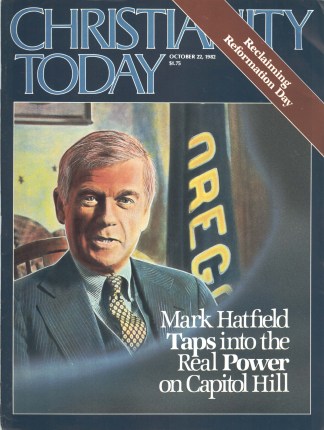In April of 1906, William J. Seymour, a black American born to former slave parents in Louisiana, began the revival in Los Angeles that launched Pentecostalism as a worldwide movement. Pentecostalism, which had begun among whites in Topeka, Kansas, in 1901, spread from Los Angeles’s Azusa Street Mission to the four corners of the world after 1906.
Seymour would have rejoiced at the sight of the thirteenth World Pentecostal Conference that convened in Nairobi, Kenya, from September 13 to 19. For the first time, the conference convened on the continent of Africa. About 90 percent of the 11,000 participants were black, including some 300 black Pentecostals from the United States.
For a while, it seemed as if the conference might not convene at all, due to an attempted coup against the Moi government during the first week of August. Night curfews were in force until shortly before the conference convened. In fact, a week before the opening service, loot stolen in the coup attempt was piled 15 feet high in the auditorium waiting to be claimed by businessmen who had been robbed. By the time of the opening session, however, the city of Nairobi and the conference center had returned to normal.
The conference opened on September 13 with an outdoor evangelistic rally featuring Rheinhard Bonnke, the popular German evangelist, who addressed some 5,000 persons in Nairobi’s Uhuru Park. Bonnke’s session was planned at the invitation of the world conference advisory committee.
On Tuesday morning, the conference was addressed by Kenyan president Daniel Arap Moi, who openly proclaimed his evangelical faith, stressing the benefits Kenya had received from Christian missions and institutions. “The Christian faith,” said the president, “is the only answer to the world’s ills.” Shortly after Moi opened the conference, his government arrested 17 junior air force officers who were accused of instigating the attempted coup.
The keynote address was brought by conference chairman Thomas F. Zimmerman, general superintendent of the Assemblies of God, U.S.A. Citing figures from David Barrett’s newly published World Christian Encyclopedia, Zimmerman claimed that there were 62–100 million Pentecostals in the world, making them the largest single family of churches in world Protestantism.
By using the smaller figure, Zimmerman was including the 11 million charismatics in the traditional churches, while the larger figure also included the mushrooming African independent churches, which have never before been included in world Pentecostal statistics. The latter would include the huge 5 million-member Kimbanguist Church of Zaire, which sent no delegates to Nairobi.
The conference messages centered on the theme “Alive in the Spirit in Today’s World.” These topics pictured the world as “sensual,” “confused,” “needy,” “degenerating,” “fragmented,” and “despairing.” Little hope was offered to change this world before the Second Coming of Christ, a theme that was emphasized by Robert Taitenger of Canada before 11,000 people in the conference’s final rally on Sunday afternoon.
The most controversial message of the week was delivered by James A. Forbes, Jr., professor at New York’s Union Theological Seminary, who chided the world Pentecostal movement for its “drift toward pride and institutionalism” while occasionally supporting the “status quo of oppression and exploitation.” He called on his brothers to be “prophetic with keen discernment,” even “in the centers of power at the risk of being closed down.” He further challenged Pentecostals to “be ecumenical and share with other Christians.” Forbes’s message, which was warmly applauded by the crowd, received a frosty reception from the platform. Forbes was the only speaker to refer positively to the charismatic movement.
The thirteenth world conference thus remained true to the original purpose of the first World Pentecostal Conference, which convened in Zurich, Switzerland, in 1947. Since “inspiration and fellowship” were the major avowed goals of the meetings, little attention was given to theology or other more weighty subjects. Non-Pentecostal observers were impressed with the size and fervency of the meetings, but were disappointed with the lack of theological content in the messages.
Attendance at the conference was smaller than anticipated, probably due to the attempted coup. Only some 2,000 persons attended from Europe and the United States (including five delegates from the USSR). This shortfall was more than made up for by the attendance of the Kenyan delegates, who jammed the 6,000-seat hall for each session. These participants came from the 1.2 million Pentecostals in Kenya. To the surprise of many Americans, both black and white, the black African Pentecostals were much more reserved and decorous in their worship than their American counterparts. Yet a warm kinship was manifested between the “African-Americans” and their brothers from “Mother Africa” (in the words of James Forbes).
One of the long-range results of the conference may well be to spur the growth of African missions by such black Pentecostal groups as the Church of God in Christ and the United Holy Church. To date, few black missionaries have been sent to Africa (The Church of God in Christ with 8,000 U.S. congregations has only 10 missionaries). According to Bishop Carliss Moody, head of Church of God in Christ World Missions, the thirteenth world conference will “begin a new era in African missions” by the American black Pentecostals. Seymour would have been pleased.










